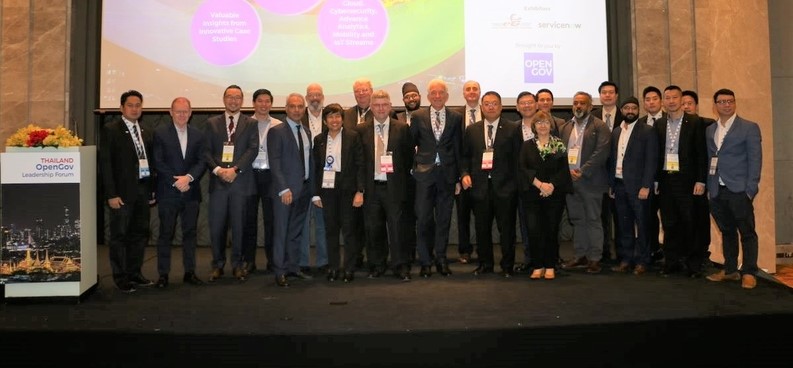
The Thailand OpenGov Leadership Forum 2019 that took place on October 17 at the Amari Watergate, Bangkok, was dedicated to its purpose of exploring and developing the digital capabilities of the Thai government across the various sectors.
The event saw delegates from various sectors come together and participate in four rounds of gamification and gain insights from the series of presentations and panel discussions. The event also emphasizes on future of digital government in Thailand.
A gateway to the better use of data
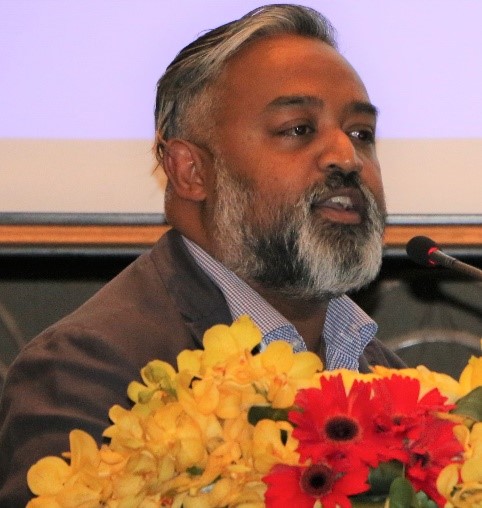
Jithma Beneragama, Executive Director- Digital, Design and Innovation at the Department of Premier and Cabinet, Victoria provided a case study of the Victorian Government.
Explaining the road taken to change government thinking, Jithma gave an insight into the significant changes within the government with the adoption of API.
The Victorian Royal commission believed that information and data sharing is key. Having the right environment for investing in the necessary technology was important.
A sustainable central information point where the different ministries and agencies can share their data was needed. That was how API came into the picture.
Jithma said that while the traditional government saw large costs, it was important to take the risk to get to where they want with it. “Traditional methods do not allow for progress,” he said.
Victorian API program
This program establishes itself as an effective information-sharing platform for the modern government. It includes a range of services to ensure that ministries can transform. APIs are created accordingly to the problems they face. Jithma added that this is all done in a 24/7 environment with the right security standards.
He concluded with some key takeaways:
- Hook into big strategic objectives
- Read the tea leaves
- Create cross functional team
- Get friends ‘around the table’ (information sharing)
- Get wins on the board quickly (to achieve success as quickly as possible)
Gamification Session – I
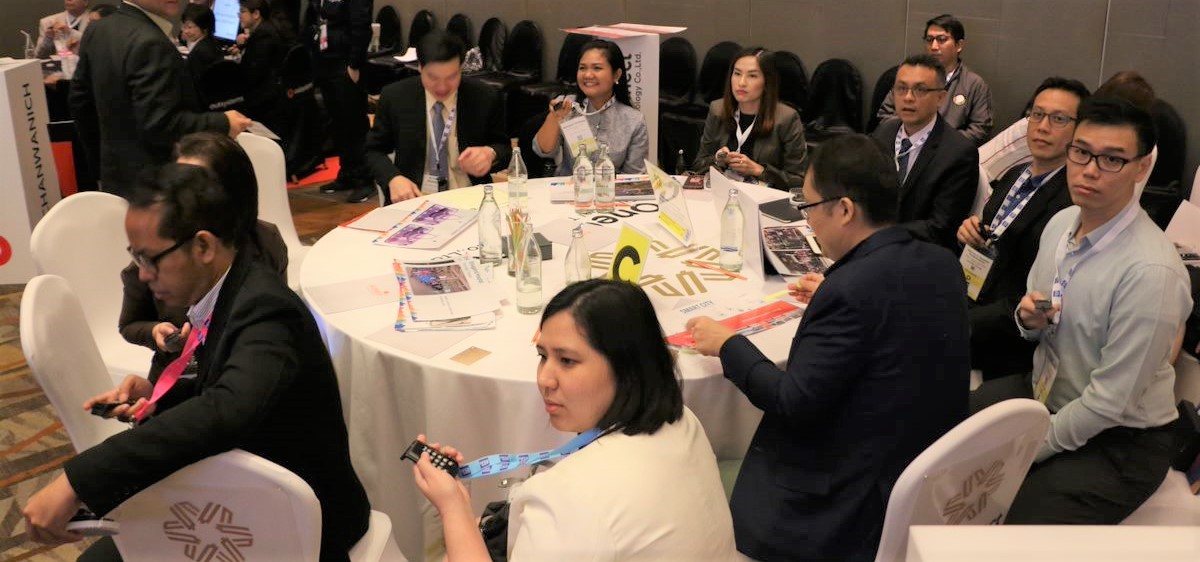
Four rounds of gamification took place where delegates played games that were structured to help them understand how technologies will be beneficial to them.
OneConnect had presented delegates at their gamification table real-life scenarios of terrorist attacks and safety hazards with the delegates having to provide suggestions of how they can use technology to improve the way these situations are being handled.
One of the scenarios was a case study of the Little India riot in Singapore. Delegates had suggested using cameras for capturing such events and for identifying crowded places for crowd regulation.
Biometrics and image processing to improve public safety in smart cities was another technology suggested by delegates with reference to a suspicious bag placed within the crowd which led to the Boston bombings.
Cameras for recognising congestion and detecting illegal parking along roads was an idea put forth for regulating road safety in Bangkok.
Identifying suspects by recognising their micro-expressions with artificial intelligence (AI) was an idea put forth for checks at the Thai customs.
Polling
- Delegates were given polling devices to input their responses to the polling questions presented.
- 31% of delegates had voted adoption of predictive analytics and AI as their organisation’s most important area of focus.
- Data sharing across agencies was voted as the biggest challenge by 37% of delegates.
- The top skill area of focus for 41% of delegates was data analytics and software development skills.
Gamification Session – II
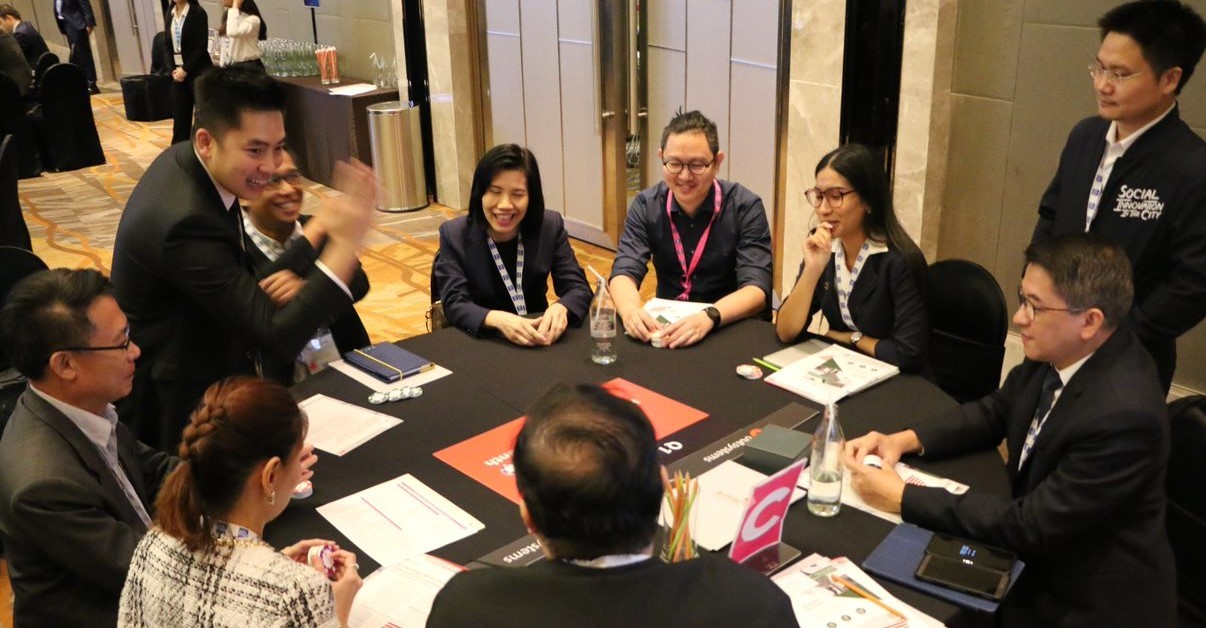
Outsystems had designed a roulette game for delegates surrounding how low-code makes digital transformation a reality for a smart nation. They posed the question of what the top approach to speed up application delivery is. The highest bets were placed on agility.
The secondary question of how many developers are recommended to be in an agile team, delegates placed their highest bets on 5 as their answer.
Discussions of how technologies can improve processes was going on at another table. A doctor put forth his thoughts that machines for identifying data that the human eye cannot identify using machine learning will be highly beneficial to the healthcare sector.
Having similar views, a delegate who is an engineer by profession said that machine learning can be used for archiving information for optimising processes. This information can be used for conducting checks on material quality.
They agreed this can all be achieved if the culture and mindset for data privacy allows for it.
Polling
- Main area of investment in the next 12 months for 38% of the delegates turned out to be data analytics.
- Extracting information is the biggest data management challenge for 40% of delegates.
- 74% of delegates said that their organisation has limited access to all sets of data as a result of their data not being classified fully.
- The biggest cybersecurity risk in organisations was employee negligence for 59% of delegates.
- 43% of delegates have a dedicated team focusing on cyber threat intelligence. 22% only have a dedicated person within organisation instead.
Gamification Session – III
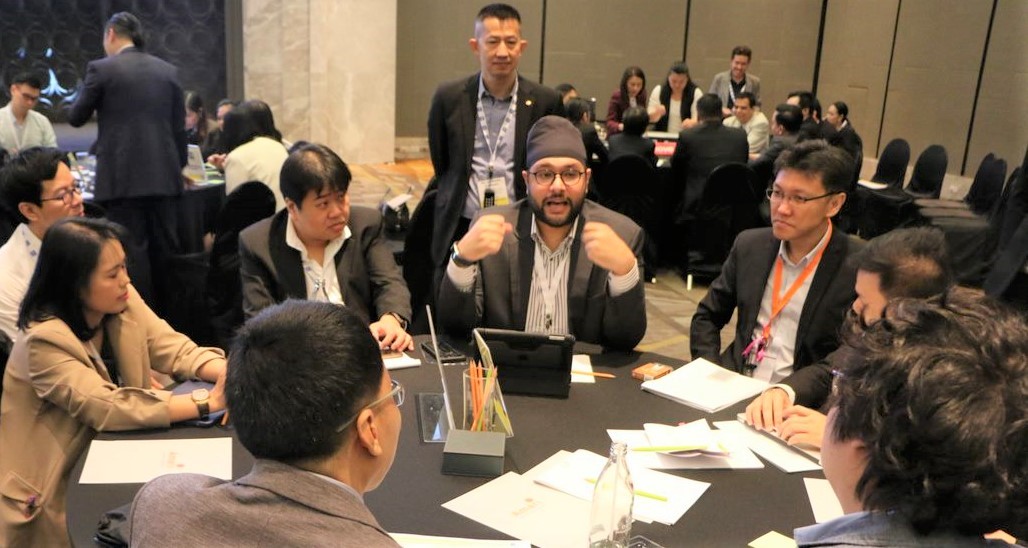
Another gamification table saw the simulation of a cyber-attack. One delegate played the role of an organisation and another as a hacker. The game was about understanding the different ways in which cyber-attacks can happen. The game drove the point that it is not just about understanding how to use technologies but to also create awareness and knowledge on cyber-attacks amongst employees as well.
Delegates shared that it was an interesting experience for learning about the various technologies and cyber hacking methods. Sharing of information to learn from one another was a key takeaway.
Polling
- 63% of delegates voted that their organisations were well prepared to face a cyber threat but are unsure if it can withstand an infiltration.
- On plans for having a Security Operations Centre (SOC), 44% of the hall voted that there are ongoing plans for it.
- Hybrid cloud received 69% of votes as the choice for a long-term cloud strategy.
- Concerns on data privacy, security and compliance were cited as the main concern for adopting public cloud- 87%.
- 43% voted that the key consideration for cloud deployment is security compliance and credentials.
















